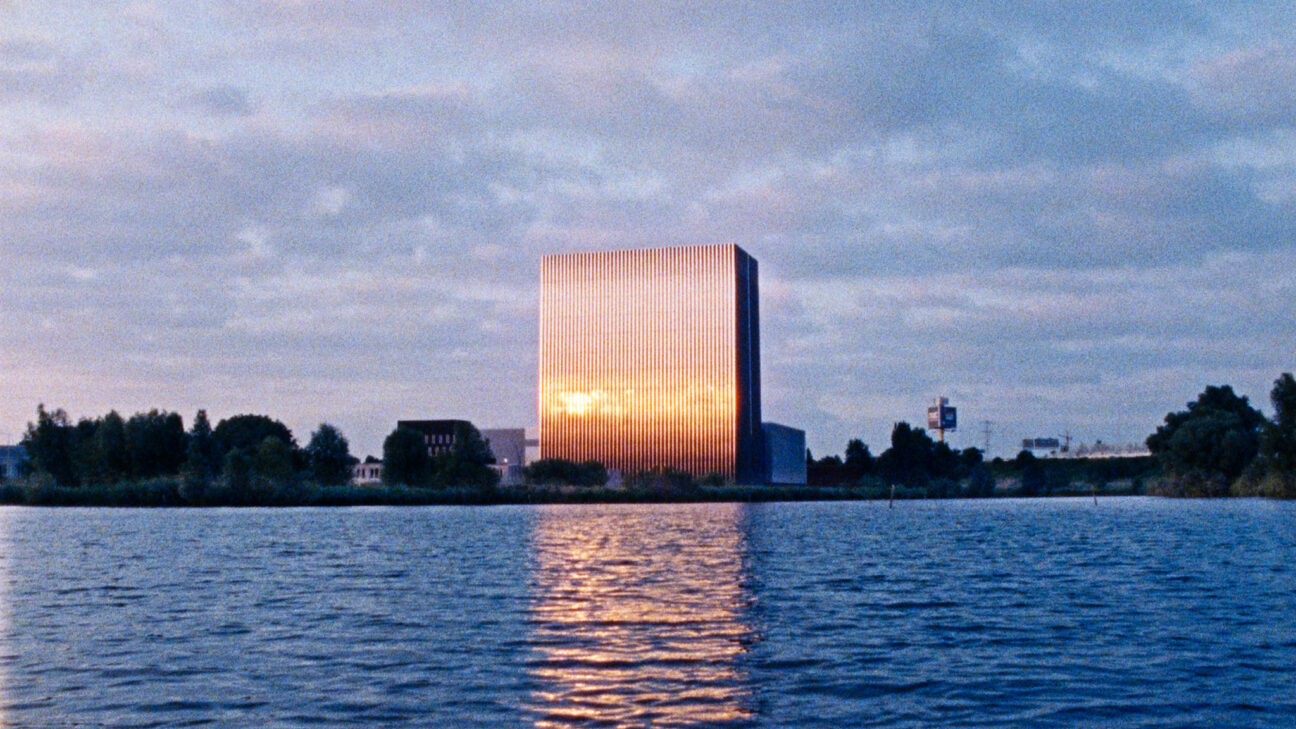"Therefore, in the following decade, the stupor and uneasiness must be followed, abruptly, by a moment of cognitive availability to revoke old beliefs and to cling to new ones where it is considered feasible to find solutions to anxieties and needs. It will be the moment of crystallization of a new system of beliefs that restores a new meaning to historical time. And that relaunches the passing of social time.”
Politics at the Gateway of Nothingness: Liminal Times, Álvaro García Linera
Spaces and places have a reciprocal relationship to social life. They respond to, organise, and encode our experience in the world. Spaces structure subjectivity, and our subjectivity is capable of transforming spaces. When our contemporary moment feels overwhelming, both liminal and perpetual, the changing impressions that spaces impart on us over time, in reciprocity with the social, can be hard to register.
Film can both redeem the flow of time and alienate us from it. Films bring the past into conversation with our present experience of them and prefigure a future in the questions they leave unanswered. This programme is a proposal to occupy this temporal juncture, where we are able to consider our orientation to the spaces we inhabit and ask how our social relations and collective desires shape the future of space.
The former Elephant and Castle Shopping Centre, the focus of The Palace (Jo Prichard, 2019), had exceeded the narrow remit of what could be traditionally considered a shopping centre. It had become porous, lined with markets that blurred its boundary. It had become multifunctional, multicultural and sociable, as the titular bingo hall of The Palace documents. At its inception in 1963, the shopping centre represented ‘an entirely new approach to retailing, setting standards for the sixties that will revolutionise shopping concepts throughout Britain.’ By its end in 2021, this project had disintegrated, and the space became malleable to the various needs and desires of the community. The shopping centre represented a new epoch of plenitude following the scarcity experienced during World War II. The luxury housing development taking its place does much the same in the wake of austerity. No Se Ve Desde Aca (Enrique Pedráza-Botero, 2024) is a repudiation of this promise inscribed in space, as it expands to become a place like America. The film maps found footage - from 1950s American advertising to the Colombian President disparaging the middle classes - onto luxury housing developments in Miami. By contrasting this televised address with depictions of being an immigrant in America, it contests the enduring reliability of ideas of progress and upward mobility. What is the future of a place holding a promise that can no longer be fulfilled?
The promise of the industrial revolution left behind the warehouses that now make up Newcastle’s Ouseburn, home to Cobalt Studios. To The Dancers (Susie Davies, 2023) expresses the venue in sound and movement that spills out onto the streets of Ouseburn. The familiar experience of being immersed in the flow of music is repeatedly interrupted by gong baths, life drawing, and construction work. Cobalt’s founders express the reason for such intense diversification of their activities: it is an attempt to ensure the space will extend into the future. Nonetheless, they continue to host each act for a communal pre-show meal. The space exists in service of the social, forestalling the false promise embodied in the luxury developments looking to take its place.
The film locates us in a space that correlates to our individual struggle to keep up with absurd demands of the everyday, as we strive to sustain ourselves into the future. Our social condition is made tangible in space, made available for questioning: which struggles perpetuate the social, allowing for collective desires to emerge? Which struggles atomise us in service of unattainable futures?
Center, Ring, Mall (Mateo Vega, 2023) traces the textures of data centres, ring roads, and shopping centres. The film presents a genealogy of the promise of progress as it has been realised in space, over time. Narrated by a collective voice, the social is estranged from its ephemeral manifestation. Instead, it is situated in utopian histories, present ruins, and future possibilities.
In particular, the edges of a data centre outline a physical form that we ordinarily experience as intangible. Our occupation of digital networks is disembodied, overstimulating, and isolating. It is also collectivising, expansive, and infinitely malleable. It exceeds what it is materially made up of: data centres, undersea cables and satellites. The digital harbours a collective subjectivity with the capacity to transform spaces beyond its own physical space, beyond our immediate surroundings, beyond what already exists.
How future spaces materialise in relation to the social is an undefined horizon. Enduring over multiple lifetimes, both infrastructure and film sustain history as an experience in the present. In alienating us from the quotidian and untethering us from the onward march of progress, they ask us to question our ideological investments. In this space of time, promises can be refuted, the future is revealed to be undetermined, and new orientations can be found that outline the contours of a horizon worth struggling for.
"This time of collective desire for new organizing certainties of the predictive horizon is brief and profound. [...] It is a moment of mobilized collective discomfort, but as a result of which all the old accumulated uncertainties, the perplexities experienced, the added anxieties, explode and people feel compelled to modify the organization of their lives, to rush into a new destiny that restores the certainties of a better future, regardless of the temporary sacrifices that have to be made."
Politics at the Gateway of Nothingness: Liminal Times, Álvaro García Linera
